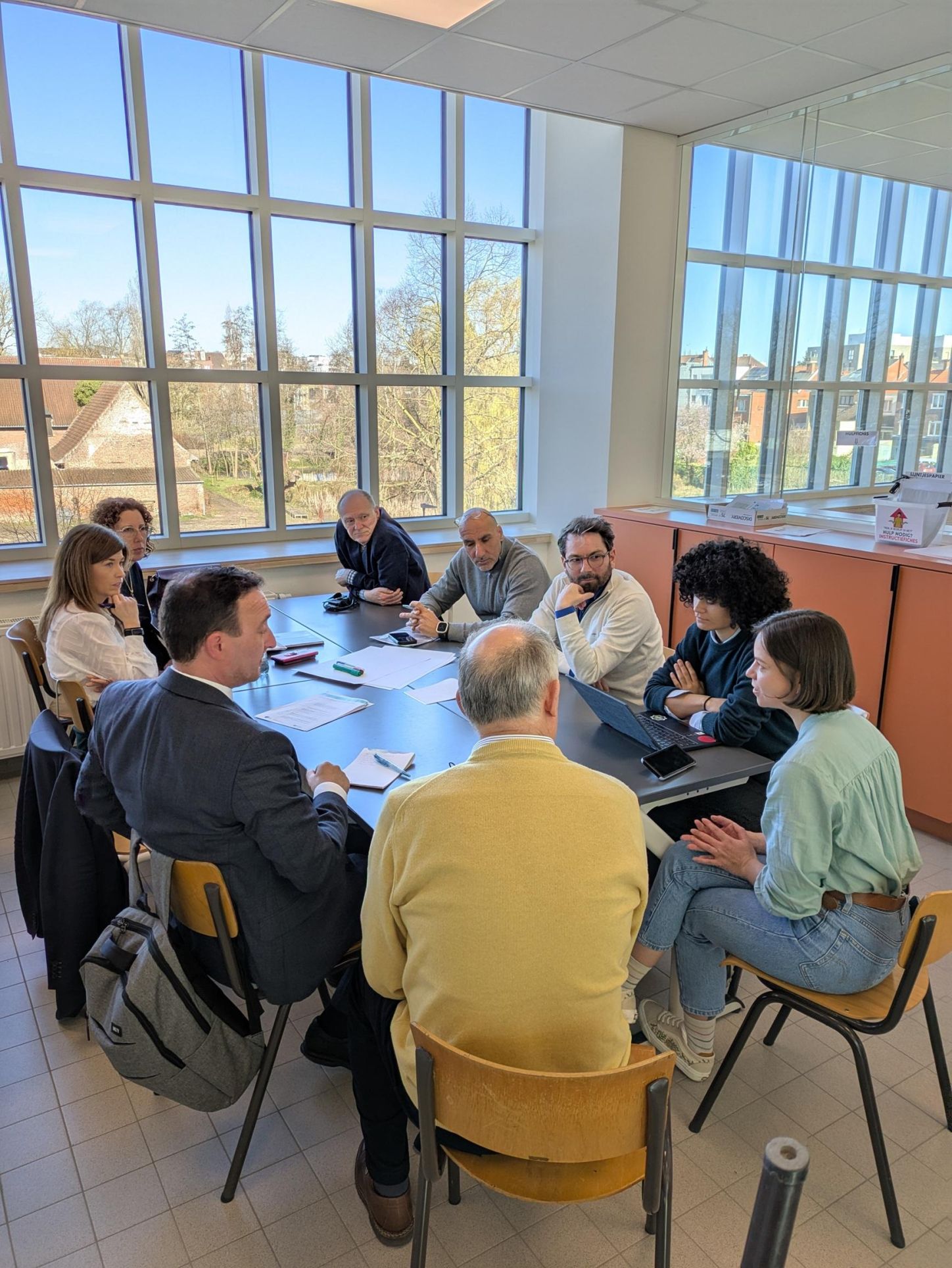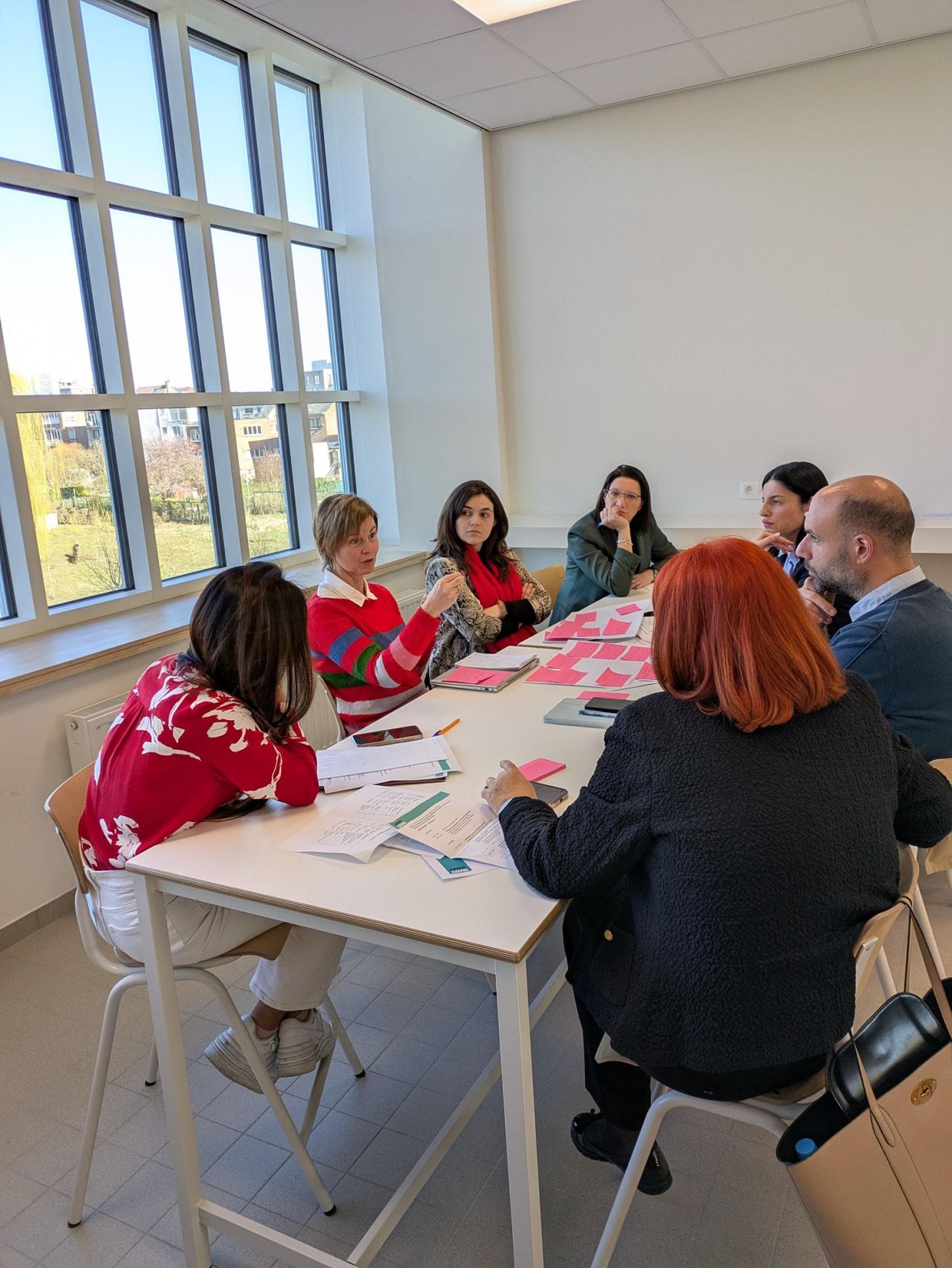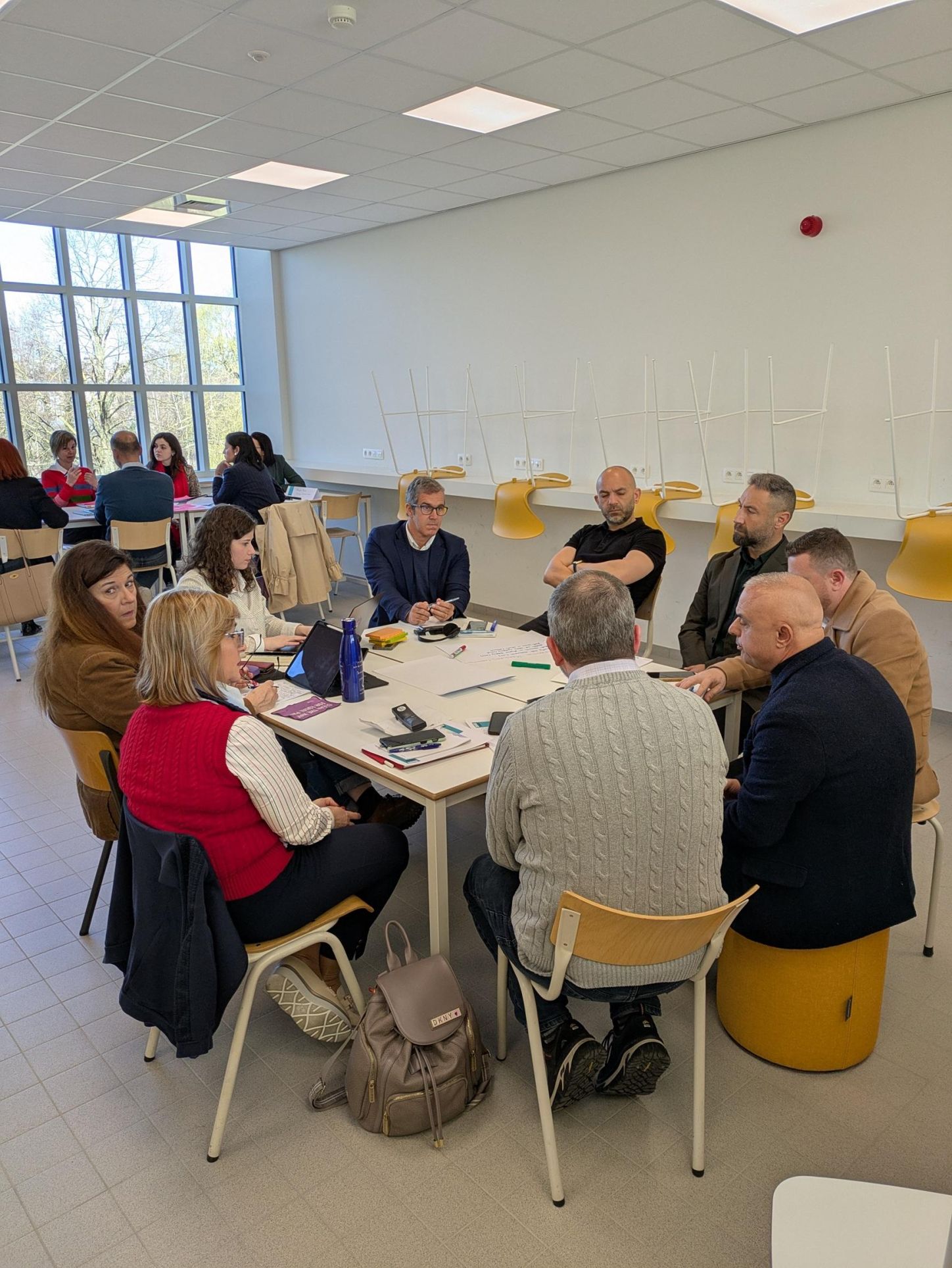
Education Social Partners Advance Dialogue on Psychosocial Risks at Brussels Training Seminar
Education employers, trade unions, and experts convened in Brussels for the Joint ETUCE-EFEE Training Seminar on Preventing and Managing Psychosocial Risks in Education, a key event under the APRES COVID project. Hosted by GO! COOVI secondary school in Anderlecht, the seminar aimed to strengthen social dialogue and provide education social partners at the national and local level with concrete tools to address the increasing psychosocial risks faced by teachers and school staff in the post-pandemic era.
The training, implementing the priorities of the ESSDE Committee on Occupational Health and Safety, focused on raising awareness, sharing best practices, and reinforcing collaboration between education social partners. Training activities were structured around two key macro-areas:“Prevention” and “Management” of psychosocial risks. Participants explored national approaches to preventing psychosocial risks, analyzed findings from case studies, and examined policy gaps affecting teacher occupational well-being across Europe. Discussions emphasized issues such as excessive workloads, staff shortages, third-party violence, and the lack of sufficient mental health support in schools.

Strengthening Prevention Frameworks
After looking at the main concepts and definitions of psychosocial risks, a key group session focused on existing national frameworks to prevent psychosocial risks in education. Participants examined existing prevention framework for psychosocial risks in various European countries. While EU occupational health and safety frameworks mandate risk assessments in all member states, discussions highlighted that psychosocial risks are often overlooked in favor of physical hazards. Although some education systems have introduced structured well-being policies and school counsellors, many countries still lack comprehensive mechanisms to assess and address stress, burnout, and other mental health challenges among teachers. The discussions underscored the need for better institutional support, clearer reporting procedures, and improved access to mental health services for teachers.
A highlight of the prevention-focused discussions was the Belgian case study, which showcased a progressive legal and policy framework that has evolved significantly over the past two decades. Representatives from Flemish education employer, GO!, and trade union, ACOD, detailed how Belgian schools integrate risk prevention, stress management, and workplace well-being initiatives into their daily operations.

Tools for Effective Risk Management
In addition to prevention strategies, the seminar explored how to manage psychosocial risks when they arise. A dedicated session on the Online interactive Risk Assessment tools(OiRA) for the education sector provided participants with insights into practical tools that can be used for evaluating and mitigating workplace hazards in educational settings. Through interactive group activities, education social partners explored existing feedback mechanisms and support systems to counter psychosocial hazards. In this context, participants underlined the need for enhanced support mechanisms, clearer feedback structures, and stronger social dialogue between education employers and employees.
As education systems across Europe continue to navigate the post-pandemic recovery, the APRES COVID project remains committed to ensuring that the well-being of educators is at the center of the policy agenda. The outcomes of the training will contribute to updating the Joint Practical Guidelines on Combating Psychosocial Hazards in Education (2016), ensuring that education social partners take concrete steps toward improving working conditions.
After nearly two years of dedicated activities, it's time to wrap up and share the findings of the APRES COVID project. Join us for the Final Conference on 17-18 June in Brussels as we reflect on our progress and look ahead to the future of educators’ occupational well-being.







